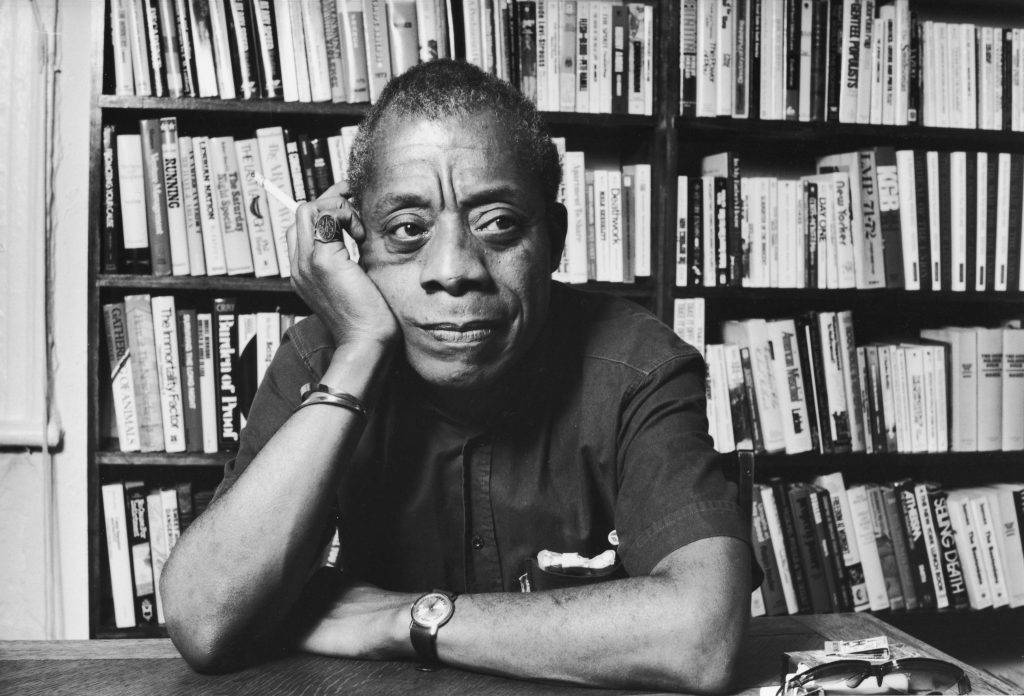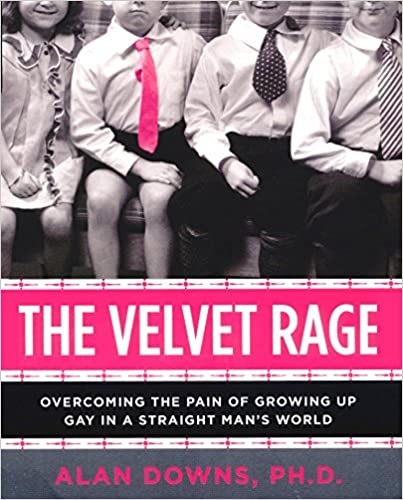EDI Director, Sarah Guerra, pens a blog about her reading of some important pieces of LGBTQ+ literature and cinema.
My recent book group book was Giovanni’s Room by James Baldwin, and by coincidence, my next book was The Velvet Rage: Overcoming The Pain of Growing up Gay in a Straight Man’s World. By even further coincidence (as we, in lockdown, working our way through my 16 year old daughter, Kaela’s, must-watch film list), we watched Philadelphia. Philadelphia is a novel, a self-help book and a movie all about the intricacies of gay men’s lives, and the barriers and prejudice they face almost every day. It’s been quite the trifecta in provoking my thinking.
James Baldwin is an author I have dabbled with and keep meaning to get serious about and read his entire back catalogue. For those who don’t know, Baldwin was an essayist, playwright, novelist and voice of the American civil rights movement. He was born in Harlem in 1924. He is acknowledged as one of the 20th century’s greatest writers. Baldwin broke new literary ground with the exploration of racial and social issues in his many works. He was especially known for his essays on the black experience in America, and is an author who might really help us all as we work more and more on tackling systemic racism (take a look at the EDI team’s anti-racism resources page here). He also broke new ground in the novel, Giovanni’s Room which tells the story of an American living in Paris with a complex depiction of homosexuality, a then-taboo subject.
Baldwin was open about his homosexuality and relationships with both men and women. However, he believed that the focus on rigid categories was just a way of limiting freedom and that human sexuality is more fluid and less binary than was often expressed in his lifetime.
Giovanni’s Room has a wide variety of themes, and is not just a ‘gay book’ (whatever that is). What really struck me was how the narrative fitted unbelievably neatly with The Velvet Rage where the author, a psychotherapist, spends time exposing the nature of the intrinsic shame that he identified in himself and others as being encoded into gay men from an early age.
Giovanni’s Room gives us an insight into David’s mind, his internal conflicts in relation to his family’s and society’s expectations, and his confusion about who he is attracted to and what is ‘ok’. It is particularly striking in its exploration of age, particularly the young gay men characters being spiteful and contemptuous about the older ones. The reader however can see that this is really their own fear of either becoming or not becoming like the older men. The novel is an anatomy of shame, of its roots and the myths that perpetuate it, of the damage it can do. There is something about the narrative that to me felt both freeing and exposing of the horrifying self-loathing that some gay men feel. There’s a passage, just before David meets Giovanni (his lover), where he observes a group of effeminate gay men. He describes them through a series of animal metaphors, first as parrots, then as peacocks occupying a barnyard. Finally, David says of a young man in drag that “his utter grotesqueness made me uneasy; perhaps in the same way that the sight of monkeys eating their own excrement turns some people’s stomachs. They might not mind so much if monkeys did not – so grotesquely – resemble human beings.” His seeing those around him as inhuman because of their different expression and his own self hatred was heartbreaking.
Downs coined the phrase ‘The Velvet Rage’ to refer to a very specific anger he encountered in his gay patients – whether it was manifested in drug abuse, promiscuity or alcoholism – and whose roots, he feels, are found in childhood shame and parental rejection. “Velvet rage is the deep and abiding anger that results from growing up in an environment when I learn that who I am as a gay person is unacceptable, perhaps even unlovable,” he explains. “This anger pushes me at times to overcompensate and try to earn love and acceptance by being more, better, beautiful, sexier – in short, to become something I believe will make me more acceptable and loved.”
Downs outlines how feelings of worthlessness can be created in childhood quite unintentionally, and these lead gay adults to search for an unachievable perfection.
Downs identifies many manifestations of “Velvet Rage” dealing with depression, self-harm and suicide, body dysmorphia and eating disorders – illnesses which are four times as likely in gay men as their straight counterparts. The book went on my reading list as a recommendation from a colleague who described it as one of the first books he had read where he really felt seen. I am grateful for the recommendation. Recommendations like this are how we all become better allies.
In Philadelphia, we see an Academy Award winning performance from Tom Hanks, telling the story of a high performing lawyer on a fast career track who suddenly finds himself fired. He takes his employer to court and proves the case that the sacked him unfairly and only because he had AIDS. The movie uncomfortably shows us the reality of the 70s and 80s and how open and accepted homophobia was. It gives us a live and far more modern demonstration of what Baldwin wrote about and illustrates the elements expressed by Downs.
One of the things I particularly liked about The Velvet Rage was the very practical ‘skills for life’ section that helps any reader become more self-aware, better able to recognise how to set boundaries, how to recognise what their own needs and responsibilities are and ultimately better engage with the world and build relationships. The skills are based on the various theories that Downs puts forward of the barriers that are created for gay men which really gave me pause for thought, and I would encourage people to read both books to deepen their own insight.
I am someone who sees myself as and wants to be an LGBTQ ally. It is all too easy to let those letters roll off the tongue. These books and the film made me really stop and think: how good a job have I really done over the years? I think the fact that I have lots of gay friends gave me a false comfort. How much have I really done to understand their experience? How it might present barriers each and every day to their success and inclusion in the world? No doubt not anywhere as much as I could do. So, allies, as we find ourselves in Pride month, get out there, get reading and watching, and join Proudly King’s who can help you on this journey and tell you what will really help our LGBTQ staff and students feel more included. I’ve particularly enjoyed the new Proudly Pod and am looking forward to Virtual Pride on Friday .


